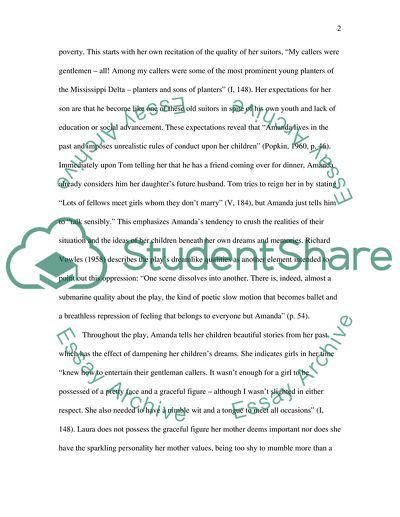Cite this document
(“Amandas Failures in the Glass Menagerie Book Report/Review - 1”, n.d.)
Amandas Failures in the Glass Menagerie Book Report/Review - 1. Retrieved from https://studentshare.org/literature/1574270-drama-essay
Amandas Failures in the Glass Menagerie Book Report/Review - 1. Retrieved from https://studentshare.org/literature/1574270-drama-essay
(Amandas Failures in the Glass Menagerie Book Report/Review - 1)
Amandas Failures in the Glass Menagerie Book Report/Review - 1. https://studentshare.org/literature/1574270-drama-essay.
Amandas Failures in the Glass Menagerie Book Report/Review - 1. https://studentshare.org/literature/1574270-drama-essay.
“Amandas Failures in the Glass Menagerie Book Report/Review - 1”, n.d. https://studentshare.org/literature/1574270-drama-essay.


